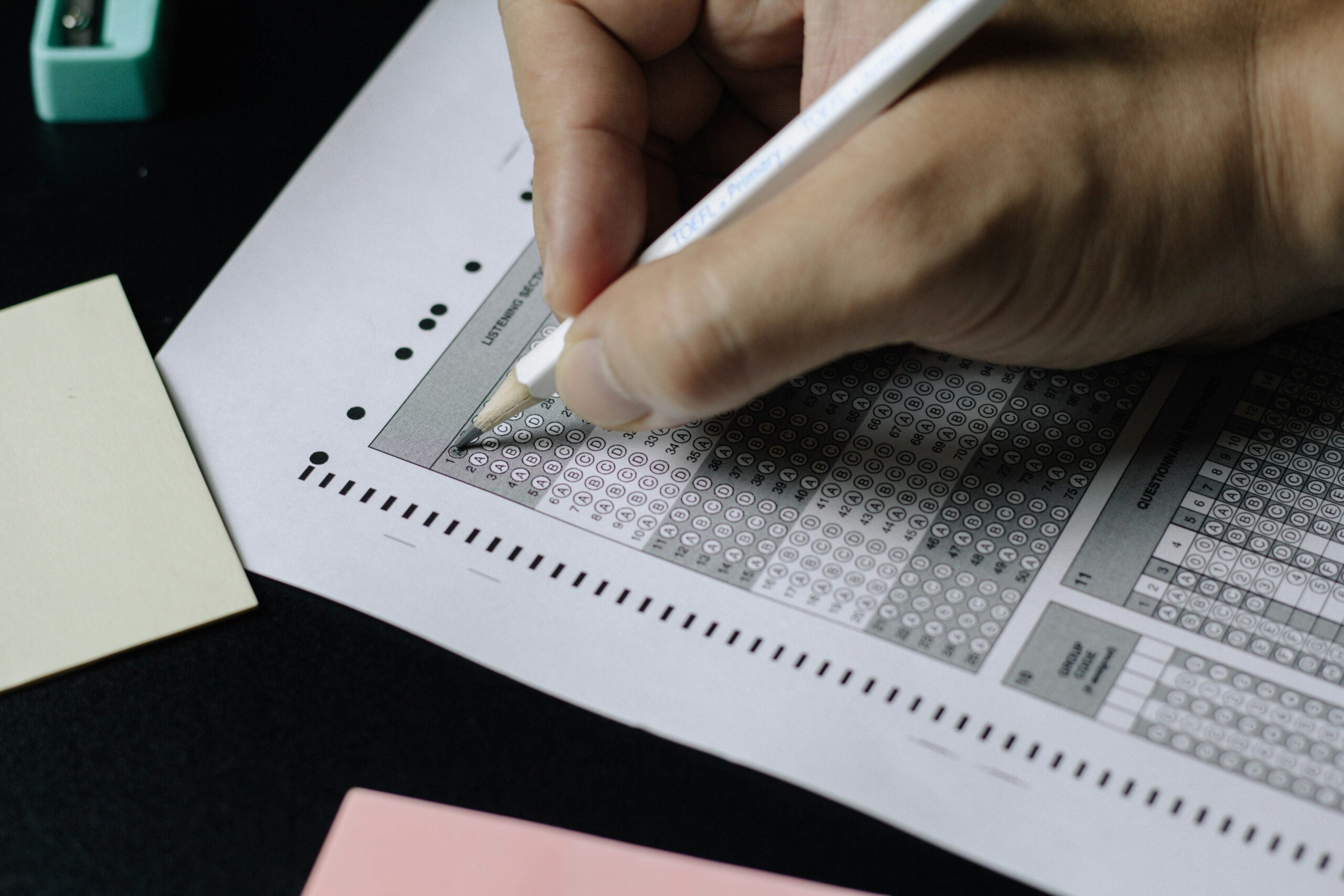Testosterone is a hormone whose levels affect both men and women. The male sex hormone belongs to the androgen group, and the pituitary gland regulates its regulation. The testes in men or the ovaries in women are mainly responsible for synthesizing this hormone. Testosterone has many vital functions, which include stimulating puberty in boys.
The hormone is also needed for many activities, such as regulating blood pressure levels and supporting the work of the immune system. But mostly, the hormone is crucial for reproductive health.

Adequate testosterone levels depend on gender and age. Men between the ages of 20 and 35 reach the highest levels. With age, testosterone in men begins to decline. Various factors can also lead to a decrease in testosterone levels. Testosterone levels that are too low or too high are harmful and can cause a range of symptoms. Symptoms can vary by gender but are often related to fertility and sex life. Endocrine disorders can be diagnosed and treated accordingly. Testing testosterone levels is also essential to detect various diseases and conditions. Synthetic testosterone can also be supplemented to achieve specific effects. Learn more about testosterone and its impact on human health.
The first effects of testosterone are already visible in the fetus. Testosterone affects the development of the male genitourinary system. Primary sexual development![]() includes the external male genitalia and spermatogenesis. The hormone is, therefore, responsible for the formation of sex and sexual characteristics in fetal life. In later stages of life, testosterone is also essential, irrespective of sex. The functions that testosterone performs in the human body include:
includes the external male genitalia and spermatogenesis. The hormone is, therefore, responsible for the formation of sex and sexual characteristics in fetal life. In later stages of life, testosterone is also essential, irrespective of sex. The functions that testosterone performs in the human body include:

Testosterone mostly plays a vital role in the development of the male child. At fetal age, testosterone determines the normal development of primary male characteristics. At later stages of life, the androgen has an impact on the regulation of secondary male characteristics![]() , which include the typical traits that emerge during adolescence in boys.
, which include the typical traits that emerge during adolescence in boys.
Such traits include a change in hunger, enhancement of the Adam's apple, and increased facial and body hair. Insufficient testosterone levels during adolescence can delay male secondary traits' development. In contrast, in women, too high levels of these hormones can cause male-type hair and the development of different male characteristics concerning, for example, the voice or physique.
In addition to influencing male traits during puberty, androgens also contribute to anabolic effects![]() . Anabolic processes include increased growth due to the stimulation of tissue growth at the epiphyseal plate. There is also an increase in skeletal muscle, as the hormone influences protein synthesis. The hormone also plays an important role in bone mineralization and density in women. The development of bone and muscle tissue and the reduction of body fat change the appearance of growing boys.
. Anabolic processes include increased growth due to the stimulation of tissue growth at the epiphyseal plate. There is also an increase in skeletal muscle, as the hormone influences protein synthesis. The hormone also plays an important role in bone mineralization and density in women. The development of bone and muscle tissue and the reduction of body fat change the appearance of growing boys.
Testosterone also affects the systemic level, stimulating the respective levels of blood components. The hormone stimulates erythropoiesis![]() , which means that it increases the number of red blood cells in the body. For this reason, the ratio of erythrocyte volume to whole blood volume is relatively higher in men than in women. In contrast, when men's testosterone levels decline with age, they are at greater risk of developing anemia.
, which means that it increases the number of red blood cells in the body. For this reason, the ratio of erythrocyte volume to whole blood volume is relatively higher in men than in women. In contrast, when men's testosterone levels decline with age, they are at greater risk of developing anemia.
In adult men, testosterone is essential in supporting reproductive health. The hormone stimulates sperm production and adequate libido levels. Testosterone and its levels play a crucial role in maintaining sexual function because when testosterone levels in a man's body decline, libido and erectile dysfunction then occur. Testosterone levels can also affect semen quality. Conversely, elevated testosterone levels in women can result in fertility problems, decreased libido, and menstrual disorders.

Androgens are also linked to the immune system. Testosterone affects the activity of various elements, such as T-lymphocytes, and is suitable for identifying and eliminating pathogens. The immune and endocrine systems work together, so any changes in hormone levels can affect overall functioning. Therefore, a hormone deficiency can impair immune cell activity and the body's ability to defend itself. There is also speculation that the higher incidence of autoimmune diseases in women is linked to lower testosterone levels in the body.
Testosterone has an impact on cardiovascular health. The hormone mainly regulates adequate blood pressure levels. As such, the risk of coronary heart disease is higher in men with low testosterone levels. It is associated with the hypertension to which men with testosterone deficiencies are exposed.
In recent years, scientists have been expanding their knowledge of testosterone, with new studies providing a wealth of additional information. Among other things, it has been noted that testosterone may be related to pain sensitivity. The hormone may reduce pain sensitivity in men, while in women, the perception of pain is influenced by their menstrual cycle. The findings, therefore, suggest that biological men and women have different perceptions of pain, which hormonal levels may condition.
The nervous and endocrine systems condition mental states. As such, fluctuations in hormones can affect mood and perceived emotions. Testosterone deficiency affects brain function, which can cause various problems, such as chronic fatigue and insomnia, which lower mood. Low levels of the hormone also affect depression and anxiety disorders. Conversely, in cases of excess testosterone, aggressive behavior, and increased hyperactivity may be prevalent.

A condition in which specific organs do not function properly because the level of gonadotropic hormones in the blood is too low is described by the term hypogonadism![]() . In the case of the male sex, various factors can cause insufficient production of the hormone.
. In the case of the male sex, various factors can cause insufficient production of the hormone.
The leading causes include testicular or pituitary disorders, chronic stress, or taking certain medications that can block the action and production of the hormone. Androgen levels also decrease with age, so men over 40![]() are more likely not to have testosterone deficiencies and the symptoms associated with it. Signs of male hormone deficiencies can be non-specific and vary in severity. Low testosterone levels are estimated to be <300 ng/dL
are more likely not to have testosterone deficiencies and the symptoms associated with it. Signs of male hormone deficiencies can be non-specific and vary in severity. Low testosterone levels are estimated to be <300 ng/dL![]() .
.
Testosterone deficiency in women can also occur as a result of various factors, which include multiple diseases. Ovarian resection and pituitary disease may be the causes of testosterone deficiency in women. In addition to it, the use of various medications, such as estrogen preparations, can also cause testosterone-related endocrine disruption. Thus, like in men, women may experience a decline in androgen levels after menopause as they age. Symptoms of low testosterone in women can also affect sexual function, bone density, energy, and mood.

Signs of androgen deficiency include symptoms such as reduced libido and lower sexual performance. Men experience lower sexual desire. For many men, it compromises the quality of life and also affects relationships with sexual partners. In addition to it, erectile dysfunction and an overall reduced frequency of morning erections can occur. In summary, low testosterone levels can significantly reduce satisfaction with sexual intercourse.
Low testosterone levels cause general symptoms, such as increased body fat, which can lead to obesity. In addition, physical strength may decrease, and energy may be lost, causing less physical activity. Non-specific physical symptoms include reduced bone density, anemia, and facial and body hair.
Low levels of the hormone can cause depressive and anxious states, frequent mood changes, and irritability. In addition to this, concentration problems and sleep disturbances can occur.
Unlike hypogonadism, where the male and female reproductive glands produce hormones in excess, the condition is referred to as hyperandrogenism![]() . Testosterone norms can vary depending on gender, so excess hormone also affects different results. In addition to sex, hormone concentrations are also affected by age, pituitary function, and genetic predisposition.
. Testosterone norms can vary depending on gender, so excess hormone also affects different results. In addition to sex, hormone concentrations are also affected by age, pituitary function, and genetic predisposition.
Various pathological factors, such as a tumor or congenital glandular hyperplasia, can cause a pathological increase in androgens. There is also the possibility of an increase in hormone levels as a result of taking drugs containing anabolic and different hormones.
Excess testosterone can also cause various symptoms. In women, excess hormones can cause the development of acne and menstrual cycle disorders. In addition, similar symptoms to those seen in men are observed, namely hirsutism, meaning excessive hairiness, deepening of the voice, and enlargement of the genitals, which in women concerns the clitoris. In adult women, fertility problems and baldness can also occur. The symptoms of excess testosterone can also be divided into three groups.

In men, excess testosterone can also cause problems with sexuality. Patients notice an increased sex drive, which, when too intense, can affect overall functioning and frustration or cause addictions regarding sexual intercourse or masturbation. In addition to it, men may experience prostate hypertrophy and reduced sperm count, which impairs reproductive function.
Further symptoms of hyperandrogenism in men include virilization![]() . The term describes symptoms such as penile enlargement, as well as excessive hairiness and deepening of the voice. Virilisation mainly affects boys during puberty. In adult men, an increase in testosterone does not necessarily result in hair growth or increased muscle mass.
. The term describes symptoms such as penile enlargement, as well as excessive hairiness and deepening of the voice. Virilisation mainly affects boys during puberty. In adult men, an increase in testosterone does not necessarily result in hair growth or increased muscle mass.
On the other hand, men may experience alopecia in the form of hairballs, which is called androgenetic alopecia. This symptom is also related to a derivative of testosterone, dihydrotestosterone. In addition, high hormone levels can cause headaches, increased blood pressure, and elevated cholesterol levels. Elevated testosterone levels can cause heart health problems.
Both deficiency and excess testosterone can cause psychological symptoms. These belong to mood swings, as well as physical and verbal aggression. This is especially true about serotonin levels. When serotonin levels drop, a person starts to be very impulsive, so low serotonin levels and high testosterone levels trigger aggression. High hormone levels can also influence a greater tendency towards risky behavior.
Testosterone deficiencies and excesses can be diagnosed. If you notice symptoms related to this hormone, you can see a doctor and describe your situation. However, more than a history and physical examination may be required for a complete diagnosis due to the lack of specificity of these conditions. However, specific tests to check hormone levels are possible.

The doctor's interview is always an essential part of the diagnosis, but some people may have difficulty describing symptoms, especially if they are subtle and uncharacteristic. Thus, this is often the case with abnormal testosterone levels. Consequently, specialists have developed specific and detailed questionnaires to help patients describe their problems.
The ADAM questionnaire![]() addresses low levels of the hormone and the symptoms associated with it. The questionnaires are particularly applicable to groups of people who are at risk of deficiency. The questions developed can indicate testosterone deficiency with a very high probability.
addresses low levels of the hormone and the symptoms associated with it. The questionnaires are particularly applicable to groups of people who are at risk of deficiency. The questions developed can indicate testosterone deficiency with a very high probability.
When hypogonadism or hyperandrogenism is suspected, blood is taken from patients. Total serum testosterone levels can be tested from the blood sample. It is also worth checking different indicators in the blood tests, such as examining iron levels![]() , which may be lacking with low testosterone results. However, it is essential to bear in mind that testosterone results can be inconclusive, which makes diagnosis difficult. Conversely, if too low or too high testosterone levels are confirmed, additional tests for other hormones are carried out to indicate whether the condition is primary or secondary.
, which may be lacking with low testosterone results. However, it is essential to bear in mind that testosterone results can be inconclusive, which makes diagnosis difficult. Conversely, if too low or too high testosterone levels are confirmed, additional tests for other hormones are carried out to indicate whether the condition is primary or secondary.
Treatment methods depend on whether testosterone levels are too low or too high. In cases of deficiency, it is possible to administer testosterone to patients to equalize levels. Additional lifestyle changes are also often necessary, as factors such as stress or obesity can affect androgen deficiency. The method of testosterone therapy should be considered by the doctor and tailored to the patient, as careless intake of synthetic testosterone can cause serious side effects. In contrast, it is essential to identify and eliminate the problem's cause in excess hormones. In some cases, hormone therapy may then be necessary.